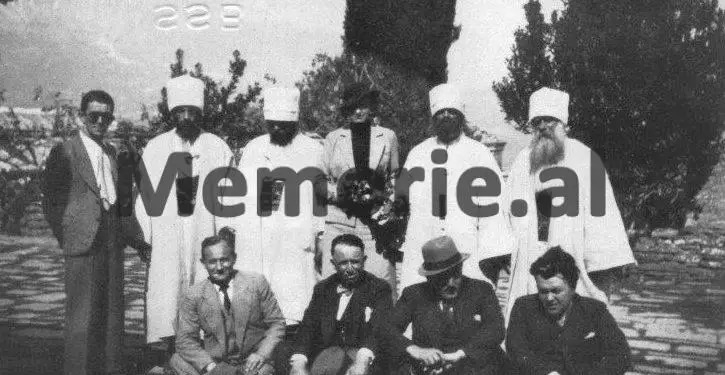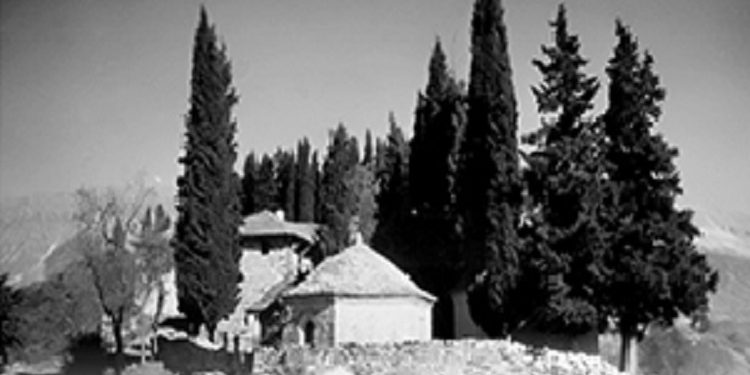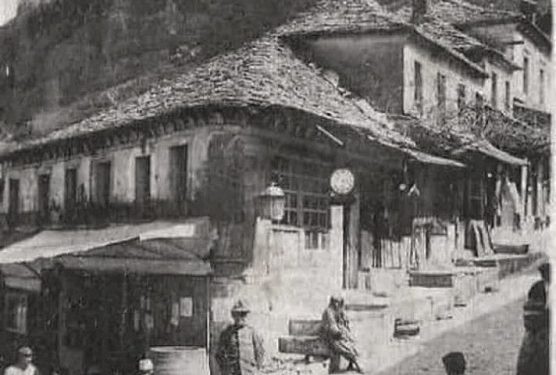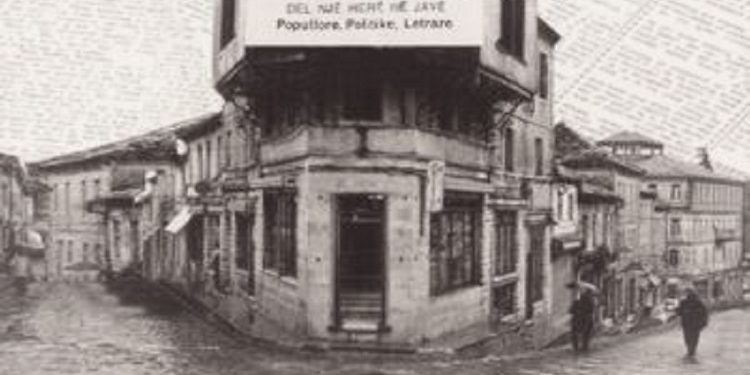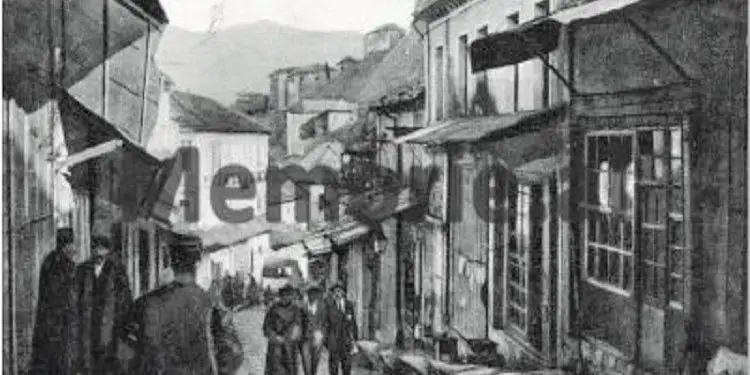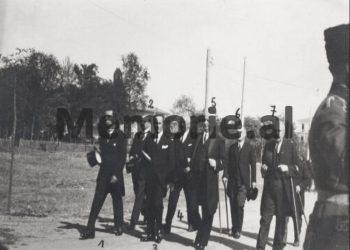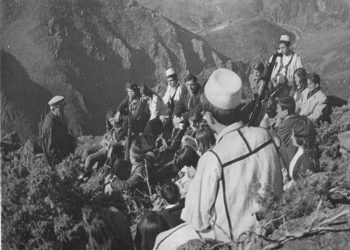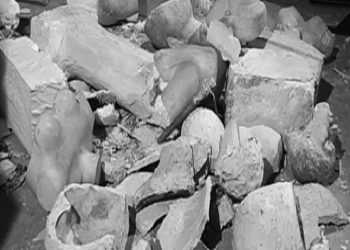By Sven Aurén
Translated by Adil N. Bicaku
Part twenty-eight
ORIENTI EUROPE
Land of Albania! Let me bend my eyes
On thee, thou rugged nurse of savage men.
Lord Byron.
In the book “Orient of Europe”, the author of the work is the Swede Sven Aurén. They are impressions of traveling from Albania from the ‘30s. His direct experiences without any retouching.
In a word, the translation of the book will bring to the Albanian reader, the original value of knowing that story that we have not known and we continue to know it, and now distorted by the interests of the moment.
Now a little about what these lines address to you: My name is Adil Bicaku. I have worked and lived for over 50 years in Sweden, without detaching for a moment, the thought and feeling from our Albania.
I am now retired and living with my wife and children, here in Stockholm. Having been for a long time, from the evolution of the Albanian language, which naturally happened during these decades, I am aware of the difficulties, not small, that I will face, to give the Albanian reader, the experiences of the original.
Therefore, I would be very grateful if we could find a practical way of cooperation together, to translate this book with multifaceted values.
Morally, I would feel very relieved, paying off part of the debt that all of us Albanians owe to our Albania, especially in these times that continue to be so turbulent.
With much respect
Adil Biçaku
Continued from the previous issue
Father’s most trusted dervish, stands at the door of the Tekke and awaits us: a winking gentleman, who speaks lame French and whose turban rests, like a large ice cream cake, on those black hairs. Otherwise, his clothes are thick, white woolen socks without shoes, a thick white sheepskin shirt and also, a white bottom. Around his belly he tied a beautiful belt; there he placed the Bektashi crystal and other sacred items, incomprehensible. This faithful dervish is very kind. He takes us to the garden of the Tekke, introduces us to the other dervishes, old and young, every two and shows us with a dignified gesture, the way up to Baba Selimi, who lives on the second floor of the building.
We walk upstairs to a small anteroom, with no decorations on those so-called white walls. From a sign of Delvino Beut, we take off our shoes and when we stand there all together standing on socks, our guide knocks three times on the oak door, very well closed of His Holiness. Then the door opened slowly and we entered. His Holiness Room is long and large, almost like a hall. Along the walls, there are long landing mats, painted in yellow and red. No chairs. The only thing that reminds me of Europe is a revered cuckoo clock, which emits its monotonous clicks from one of the walls.
In the far side of the room is His Holiness Himself.
Ah, how hard it is to find adequate words, for that impression, made by the chief dervish! It is both impressive and fascinating. Perhaps it would be fairer to say, that he looks royal, like a King of oriental tales. He has a straight body and a proud, adoring head throw. That white and silver beard is so long that it spills over the belt. That high white turban is wrapped in a green ribbon. She wears a green moss-colored cape over her shoulders, ‘a´lla Napoleon’.
His holiness raises his hand, as a sign of blessing, that we may come closer. With my lady in front, we walk slowly in a long line across the room.
When she comes very close to this holy man, the royal impression is shattered, in the picturesque one. Big black eyes, give the impression of a curious boy. I have a feeling that in fact it is not us who have come to see this strange hermit, but it is he who thinks of spending a happy moment, at the expense of these curious Westerners. He extends his hand to greet. (Which I cannot kiss even though I know it contains the label).
I will never forget this hand!
This pious Father has never been directly exposed to the sun for forty-five years, and this condition is precisely revealed, both in his face and in his hands. The cheeks are wet and milky white; the hands are the same color. This is not the hand of a sixty-year-old I hold in mine. This is of a twelve-year-old girl: thin, soft, white chalk hand, which causes a wonder and not just a feeling of sensation and pleasure. The contrast between the waves of the silver beard and the soft velvet girl’s hand is stunning.
We sit on the shelves and Delvino Bey, serves as an interpreter during the conversation. In a calm and clear voice, the master of the house asks for information, on our impressions of Albania and while we murmur something about it, that it is indeed a wonderful place, in which His Holiness lives, he whispers some word in ear, to his adjutant vngërosh. He immediately leaves the room, backwards, because that is the ethic, and comes after a moment, with a bouquet of freshly cut flowers, which he hands over to my lady, while His Holiness, tries at all costs to capture the appearance of the face her, to see what impression this compliment will make on this Nordic woman. A few words of kindness for thanksgiving will go wave after wave, on the long beard, from pleasure.
After enjoying some plum pieces, homemade cakes, we are ready for lunch. If we had known exactly, at this moment what would happen, then in time we would have taken some protective measures. Still all the time, I wake up at night and with my forehead soaked in cold sweat, thinking about the feast of the dervishes of Teqe, in Gjirokastra. But now once and for all it has been arranged here in the world, that man knows nothing of what awaits him. So it was with impatient glances that we followed the preparations for the holiday.
A large, round brass plate is placed on a small wooden pedestal, two decimeters high above the floor. This is the bread table. His Holiness sits cross-legged, near the brass plate table, and the rest of us follow the example, until we sit, in a circle, and look at each other. During a great deal of care, the adjutant takes a small mesh case from the wall and when he opens it, contains another case and then another.
In the last case, there is a rag and in it, a horn spoon, which, with a deep bow, he hands to his Father. In front of my lady and me are placed iron spoons, as an act of respect and as an honor, for sitting next to the table, the two barbarians of the western country, two metal plates, all natural, which reminded me of those washing basins, during the summer picnic in Stockholm. Other than that, I believe they were bath tubs.
So the door opens on the other side and a dervish walks forward to keep his balance, to the table and above his head, carries the first dish. With an encouraging smile they put the box, in the middle of our circle. Maybe an encouraging makeup is needed. The first dish is hidden in a large box and from the dark depths, the strangest vapors rise. A hearty sign with the head from the Father and four spoons of iron and one of the horns, plunge inside the dish into the cousin and lead hastily, to the five mouths.
We hesitate for a moment, my lady and I, but except for a moment, and then we dip our spoons in the magic potion and try hard to stop a pair of coughing fists. His Holiness asked a benevolent question, whether the soup is hot. Ah, if only it were too hot!
Eating goes on.
After the soup comes the first meat dish: whole boiled lamb ‘ál ´Albanie’. He has risen like a hood, in a pan and there is nothing, nothing. Downstairs, that experienced chef has put his feet and hooves, as a beacon of support for others. Above the feet, rises a macabre pyramid, of cluttered pieces of meat. At the top of the pyramid, is the head of the lamb, from which, those cracked eyes, and look with a melancholy from us, surpassed only by our eyes.
The master of the feast shines with delight, and draws no attention at all, to those broad shoulder strands, which have made their way into the curves of the beard, of silver color. He puts down the horn spoon and grabs the lamb by the hand. What is the use of mechanical inventions, when Allah has given man, natural instruments of capture?
We follow the example above and go, pull on the pieces of meat, to cut them into appropriate dimensions, for the mouth. This is a tense tug-of-war. But even though we use all possible muscle strength, His Holiness does not seem completely satisfied, with our yields, at least, not with my lady. With greasy hands, he snatches a piece of meat cabbage and puts it in her pelvis. Baba Selimi, appreciates a lot, for his friends to feel satisfied! Translates Delvino Beu, with an apologetic smile.
After the lamb come a dubious meat dish and then three more dishes, again with meat. Now we come to the desserts: the first section consists of six different variants, of some kind of cream, I still feel the taste in the mouth and the other one, summed up four gray powders, jelly, to look like they are suffering, from nervous tremors without controlled. When we have reached so long, I have sweat on my forehead and I almost dare not, to take a look at my lady, who pale and ready to cry, touches with wonder in her pelvis. Let’s leave this, that my attention is drawn to the other side: the door slams shut and a pleasant New Year’s face looks inside from the front door. He is the chef of the Tekke, who will enjoy the triumph of the art of his cooking.
But even the most difficult tests, have an end and come out of nowhere, we have finished with fifteen finesse of Albanian cuisine. A dervish rushes forward with a bucket of water and a basin and washes the hands of friends in turn and order. The group rises from the bread table, all except my lady and me. We could not get up. Sitting in an oriental position, with the legs turned under the body, is an art, which can be mastered through several years of training. Our desolate feet, the tooth as if they had been suddenly affected by bad rheumatism.
Of course it is difficult to contain dignity, under such circumstances and we have almost no reason to marvel at this joyful atmosphere that pervades the room: His Holiness, you smile, the gentlemen of Gjirokastra smiled, the cook of tyrbes smiles. But I would like to see His Holiness, to try to sit in the invention of the West which is called, the chair! It is likely that he would fall to the floor and be hit to death.
So when coffee is served, the boredom is forgotten. You drink the best coffee in Albania and the best coffee in Albania; you have it when you invite, Baba Selimi. It is so refined in its aroma; it has very well measured proportions, between sugar and coffee, that I am ready to forgive fourteen of those fifteen dishes. Yes God knows, if I would even forgive the lamb head, with that sad look! The Chef of the Tekke, has gained a good chunk, from his prestige completely lost.
His Holiness, is back in his corner and the adjutant with trained hand, arranges the cloak over his shoulders. Now that he is freshly washed and groomed, his beard has been combed; he makes a great impression again. Our conversation starts anew.
-His Holiness wants to hear something about the position of the Muhammadan religion, in the Nordic countries, translates Delvino Bey, with a fun smile.
-Unfortunately, Your Holiness, I answer, so I am obliged to announce that the army of true Nordic believers can hardly recruit any Muhammadan during these last years. At least, not in Sweden, I add, so that my words do not sound so brutal.
Then it looks like something quite strange. Baba Selimi, bursts into a relaxed laugh and says to Delvino Beut, a few words in a hurry, which gets a disturbing facial expression.
-Hmm, Delvino Beu scratches his voice. His Holiness expresses wonder at what any Muslim in Sweden has in general. He has so far believed that Sarajevo in Yugoslavia was Muhammad’s last post in Europe, farther north, with the rare exception of a mosque in the world’s major cities.
What can you answer for that? Both I and Delvino Beu seem to have underestimated the educational level of this old hermit. An embarrassing silence spreads across the room.
Baba Selimi, is indeed a very careful man, who hastens to remove that confusion of the atmosphere. He begs his adjutant to bring some books and after a few minutes to flip through some wonderful manuscripts, bound in parchment in Arabic. They are made extremely carefully. It is a confident and loving hand, that has printed these pages so densely written and is an artistic talent, which is reflected in the corners of the paper and understood by the beautiful ribbons of flowers.
-These are my deeds, explains His Holiness. I myself have written my thoughts. That volume, which you have in hand, contains poetry. The other one deals mainly with astronomical problems.
-Your Holiness, I ask, how can man be an astronomer without studying the starry sky?
-A modern astronomer has almost no need to see stars. He just counts. So far I have not yet reached. But in the evenings I can see a piece of starry sky, through my window.
Then we say goodbye to the holy man of Gjirokastra. We bow deeply, pass the hand-kissing ceremony, and walk back to the door, thinking that Baba Selimi, however, is someone far more important than an exponent of the fanatical oriental religion. A personality, the man in the green cloak, across there. When I open my eyes for the last time, in that straight figure, with the dervish high turban, I whisper to Delvino Beut: -You must forgive me my western curiosity.
Do you not want to ask another question, His Holiness? Ask him what his motive is for keeping him imprisoned, inside, decade after decade, why he never goes outside to see his people and his country? Maybe it’s not a question of who knows what, but…!
-I will talk to him, Delvino Beu tells me briefly. He goes back to Selim Baba, while the rest of us take off our shoes in the hall and go down to the yard. Dervishes have gathered to tell us goodbye. There are pictures and handshakes and heartfelt words of departure, from which we understand nothing. When we get back in the car, Delvino Bey comes running.
-Yes, what answer did he give?
-I addressed him the same words, as if you used them yourself. I ended by saying directly to him shyly: Why do you never go out? You know how he replied: I have already been out once! That’s what he said.
-You see, adds Delvino Beu after a moment, he did not want to go deeper into that issue. He dismissed it with a joke. His philosophy of life, it is very important, that he discuss it with the stranger.
So we hurry to Gjirokastra and when we spot that small town, on the snow-covered slope, Delvino Bey gives me some information, which was the last I heard about Baba Selimi:
-Did you see that half-meter stick, with that wide crutch, that was located near the left of the door? When he sleeps, he sits exactly as you have now, except with one change, that he rests his arms and head on the crutch. The stick is also a part of his philosophy. Memorie.al
The next issue follows




